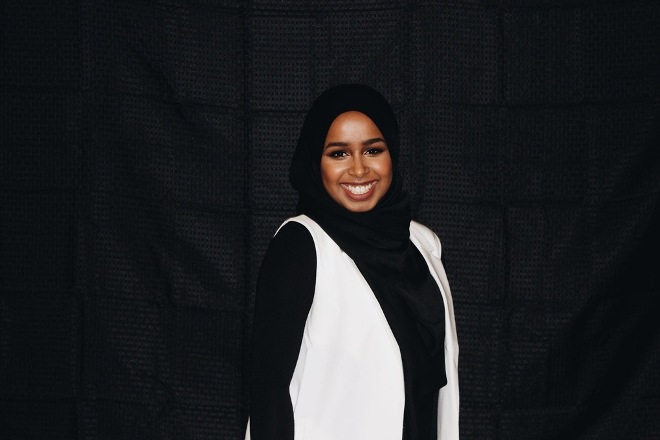
Ahlam Ibrahim
Friday August 4, 2017

For Ahlaam Ibraahim, freshman year of college felt more like a full-time public-relations job than the start of an educational journey.
Almost a third of U.S. Muslims identify as black, according to a 2017 report from the Pew Research Center. But you wouldn’t know that if you attended the University of Washington. In my first day at UW last fall, I noticed quickly that I was the only black and Muslim student in most of my classes — something I had never experienced while attending Rainier Beach High School a few miles away. (Excluding English, Somali is the second most-spoken language at home among students in Seattle Public Schools, behind Spanish.) And at Rainier Beach, people didn’t stare at me as I walked to class, which is intimidating.
When I wasn’t defending my religion, my peers were asking me if I was a pirate because of my Somali heritage.
One of the ways the UW has started to combat ignorance is by requiring all students to take one diversity course. This sounds amazing until you’re in one of them. During fall quarter, I was taking a gender studies course and one day the professor started a discussion on misogynistic mentality.
She put up an image of a Muslim woman wearing a burqa next to a woman wearing a bikini. This comparison was supposed to indicate that both of their clothing choices were influenced by men.
The professor also highlighted how some women think from a misogynistic perspective since they’re taught to do so. I agreed with the professor, but pointed out that the burqa could be worn for religious purposes and not for a man. “Why do you wear that?” another student in the same class asked me just after. I told her that I wear my headscarf for God. “You wear it for a man. He forces you to wear it,” she responded. I was at a loss for words.
Due to this experience and a handful of other microaggressions, I took on the role of being a full-time public-relations officer for the Somali community.
It is not a role I like. I grew agitated, for example, at the constant need to try to set the record straight. I also started noticing many other Somali students grappling with the same problems.
The assault of my Somali friend, who had a bottle thrown at her head while she walked through campus last November, represents how cultural misunderstandings can turn violent. After the incident, Somali students were outraged and wondered what the university could do. Inspired by the many conversations I had with others, I came up with one idea: A Somali studies program that could take the burden off Somali students and provide an educational opportunity for the student body.
I came to this conclusion after I was given the opportunity to attend the first ever Somali Student Association national conference in Columbus, Ohio. There, I was able to learn so much about how Somali communities in North America deal with microaggressions, and the ways their schools helped combat them. The Toronto School District, for example, has Somali-heritage month during which all students learn fun facts about Somalis, and Somali students are able to celebrate their culture with their classmates. At Ohio State University, students can minor in Somali culture and language. Students at the conference told me how their school environments changed after these programs were offered. In a Somali language course Anisa Liban took at Ohio State, students received extra credit for interacting with Somali culture, like going to a restaurant.
“It’s safe to say that it’s made OSU a more welcoming environment and safe haven for Somali students,” said Liban, who is a senior at the university.
As I was learning about all these amazing initiatives, I started researching what my school offered. I discovered that UW offered no courses highlighting Black Muslims.
Brukab Sisay, my African American studies professor, told me no classes in his department had a focus on Black Muslims. The Near East department adviser said the same. I was shocked. If the UW started a Somali studies program and started incorporating my community into their curriculum, I wondered whether the unpleasant environment would change dramatically because students would be able to learn about my community and what it truly stands for.
I also decided to take action myself, and created a group called Educating the Horn. Its mission is to help East African students attend higher education institutes nationwide. The group helps students with college applications, scholarships and advises them about how to cope with attending a predominantly white institution. I really hope the UW’s administration makes a Somali studies program available. That would be one good step toward making the UW a more welcoming place for Somalis like myself.